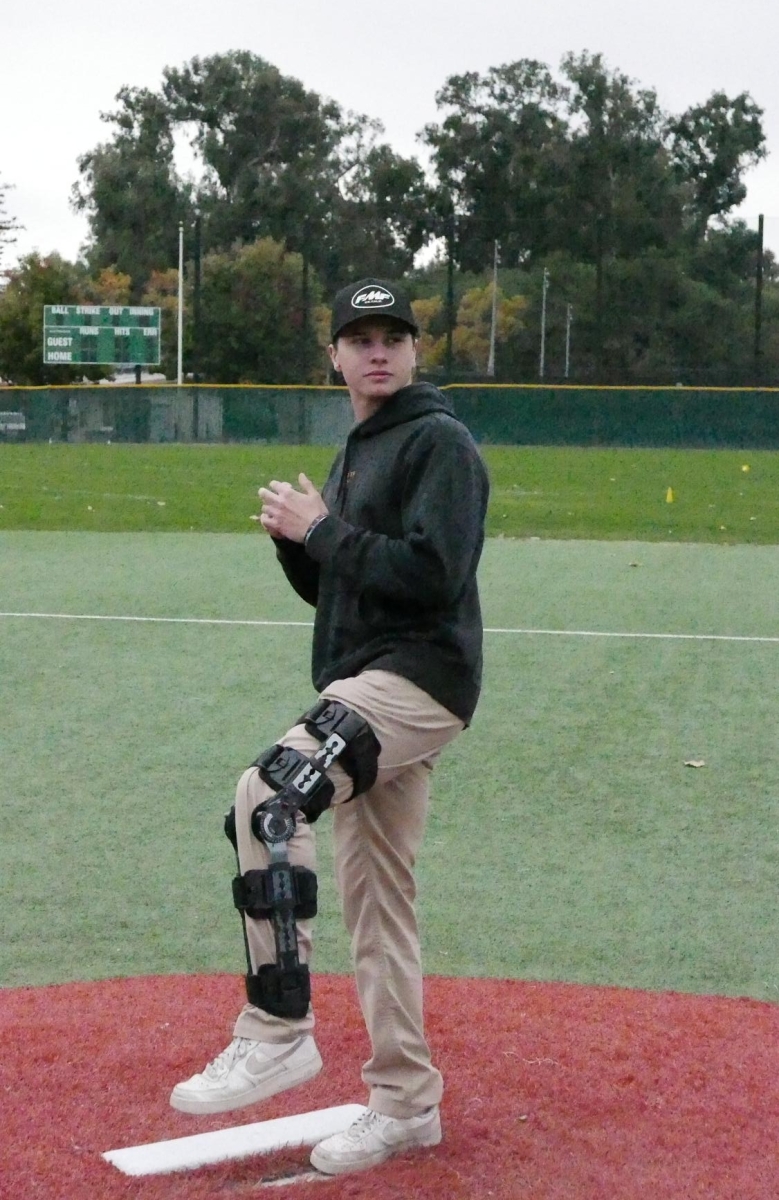During a Palo Alto High School versus King’s Academy football game, Viking senior and kicker Henry Harding was rushed to a hospital after a big hit against an opposition player. Later, an MRI scan revealed that Harding tore both his MCL and ACL.
Unfortunately, injuries like Harding’s are common among young athletes. According to Stanford Medicine, more than 3.5 million children aged 14 and younger get injured annually playing sports.
However, the psychological effects that come with injuries are often ignored. For many high school athletes who may be looking to get recruited, unexpected injuries can be devastating.
“About a week after the injury happened, I was sort of in a rough place, but I really had to think to myself, ‘How can I just be sorry for myself?,” Harding said.
Harding, a two-sport athlete who was already committed to the College of Holy Cross for baseball before his injury, expressed concern regarding his recruitment.
“They had let me know that if I did commit and I got injured, I would still be committed, but I was still pretty nervous making that phone call,” Harding said.
Mason Benkard, a senior and former soccer player, also had problems with injuries, which led him to quit the sport.
“I’ve broken my foot and my arm a bunch of times,” Benkard said. “For my worst broken bone, I was out for six months.”
Benkard said if it weren’t for his injuries, he wouldn’t have quit soccer.
“I would still be taking soccer seriously, spending every day playing, and practicing,” Benkard said. “Soccer works as a kind of escape. … You don’t have to think about school or any other parts of life that can be hard.”
Sophomore Mailangi Tongi, a Paly football player who tore his MCL, echoed the sentiments of Harding and Benkard.
“I didn’t like the feeling of being out and watching the game,” Tongi said. “It just felt really wrong to me.”
Tongi said the most challenging part of his injury was returning to playing.
“It was really hard because the first couple of games being back I rarely played, so I knew I had to gain the [coachses] trust during practice,” Tongi said.
While injuries are both physically and psychologically challenging, Harding believes that a good way to deal with them is by doing the best you can in the moment.
“Nobody else is coming to save me, so the way I stay healthy and keep a good mentality is going to physical therapy and doing everything I can every day.”



